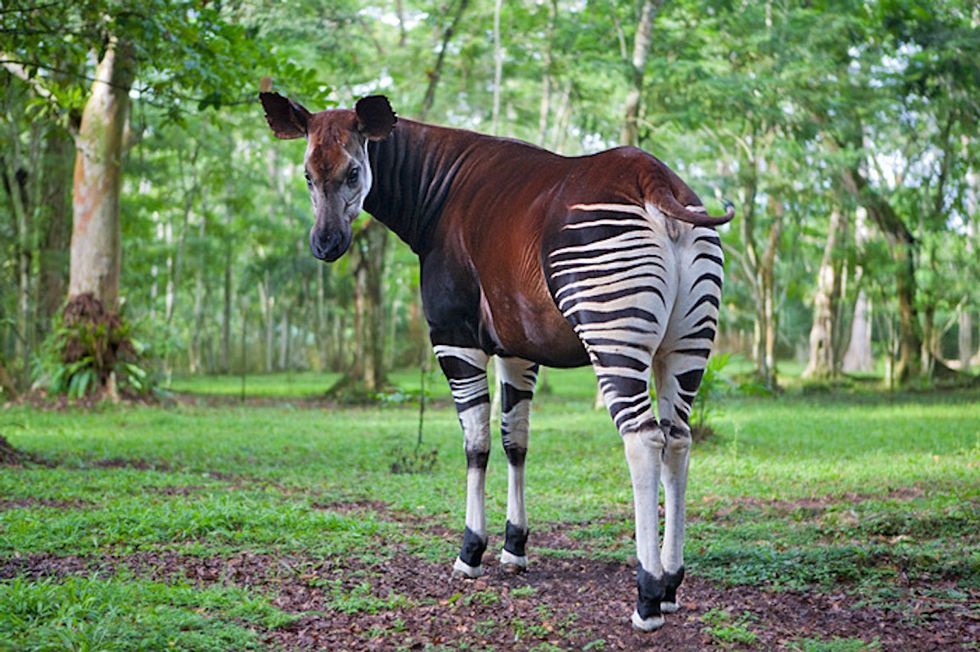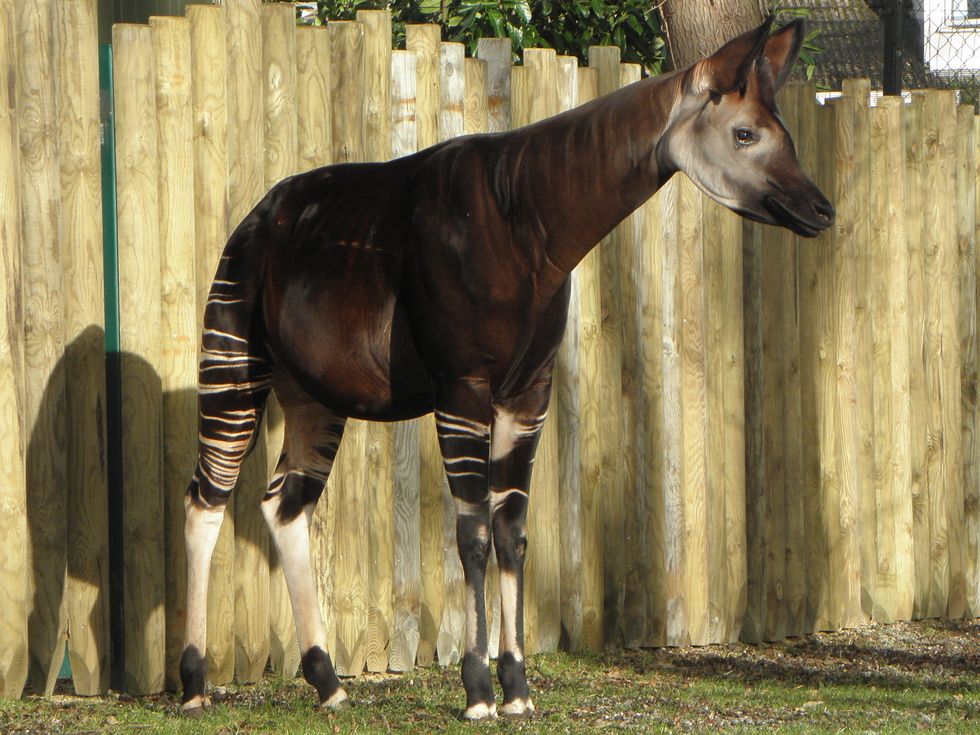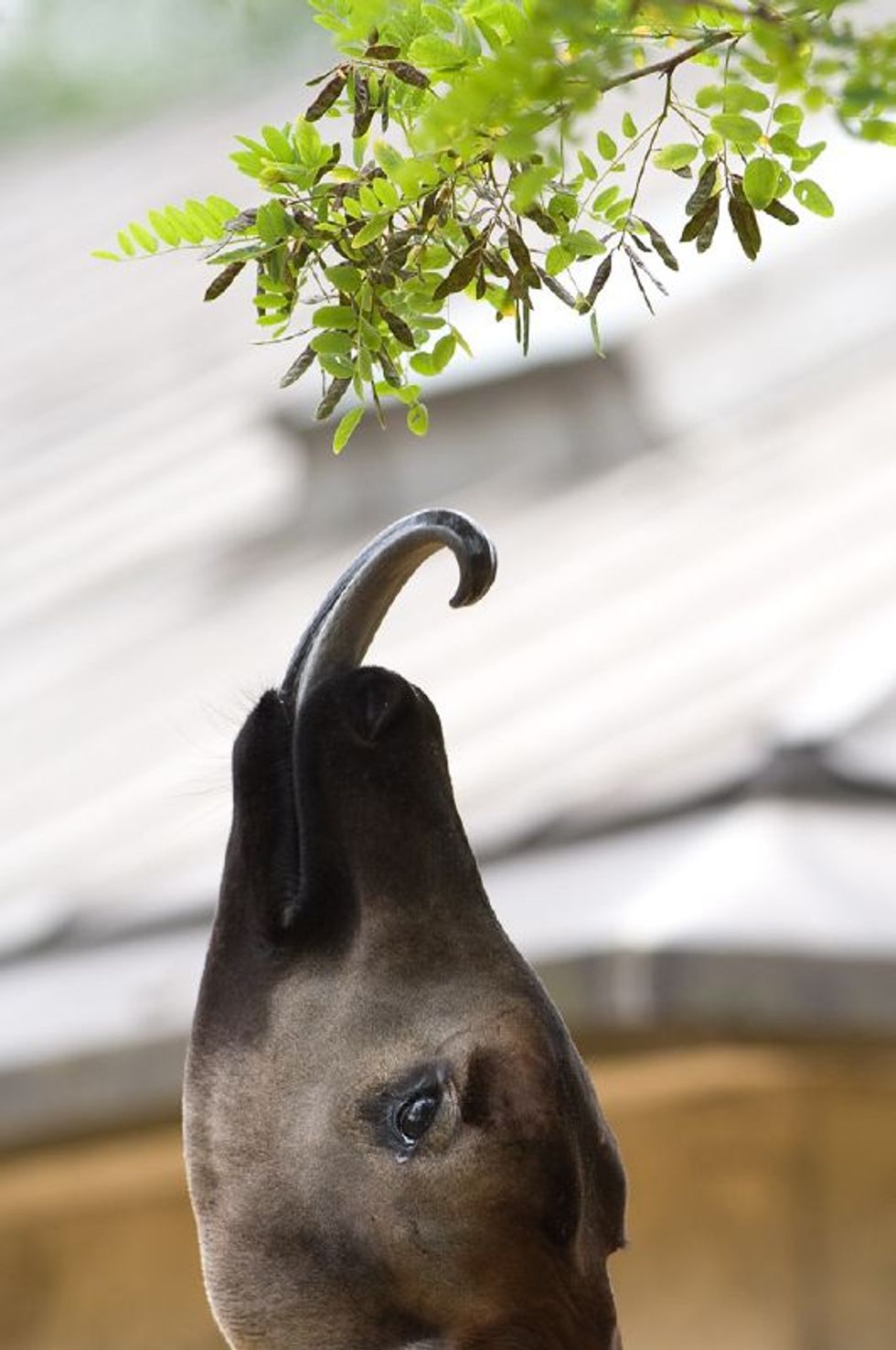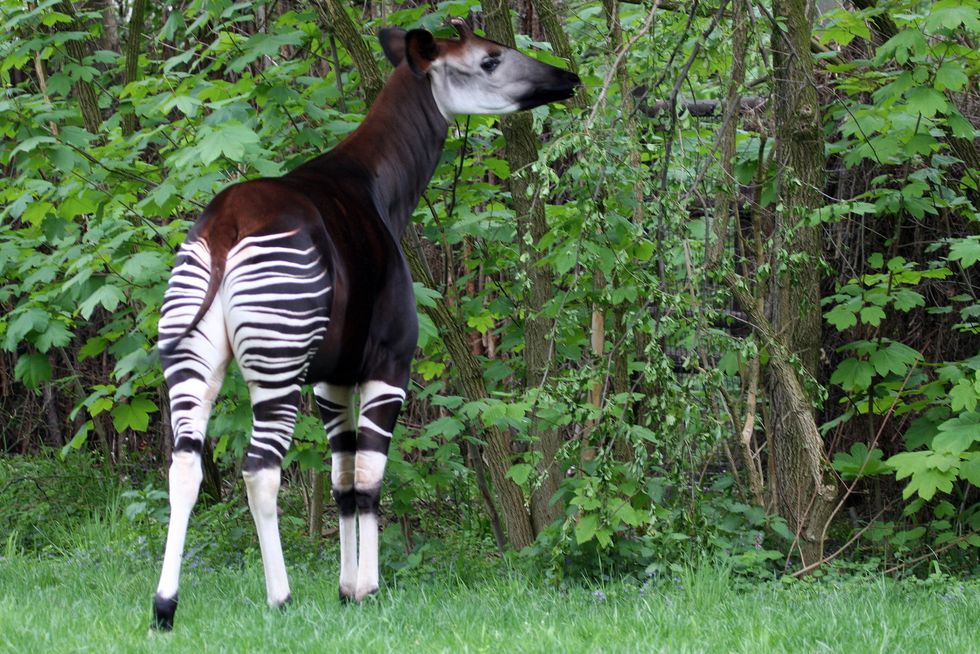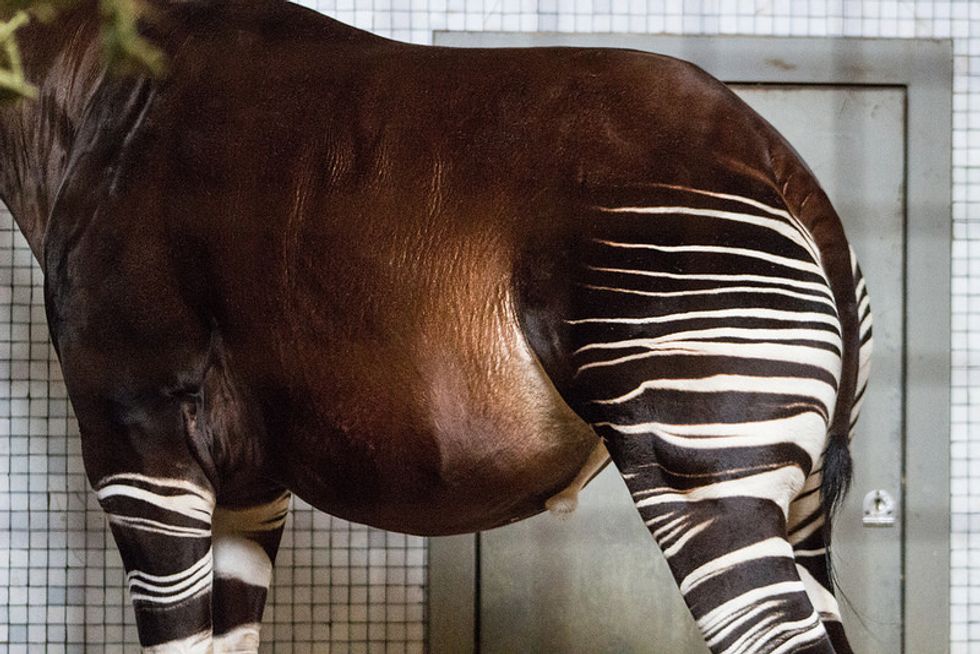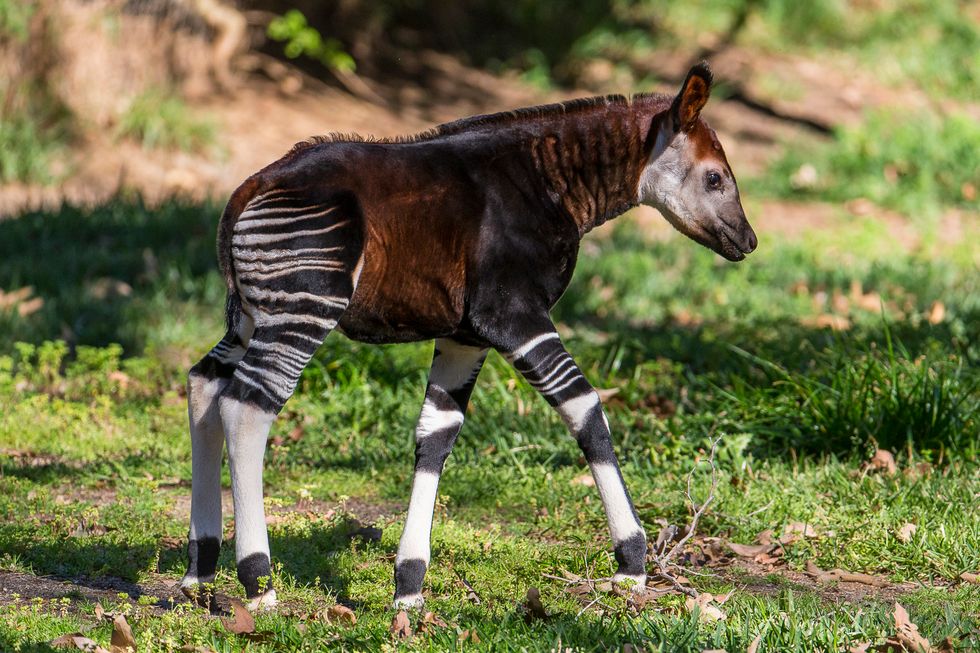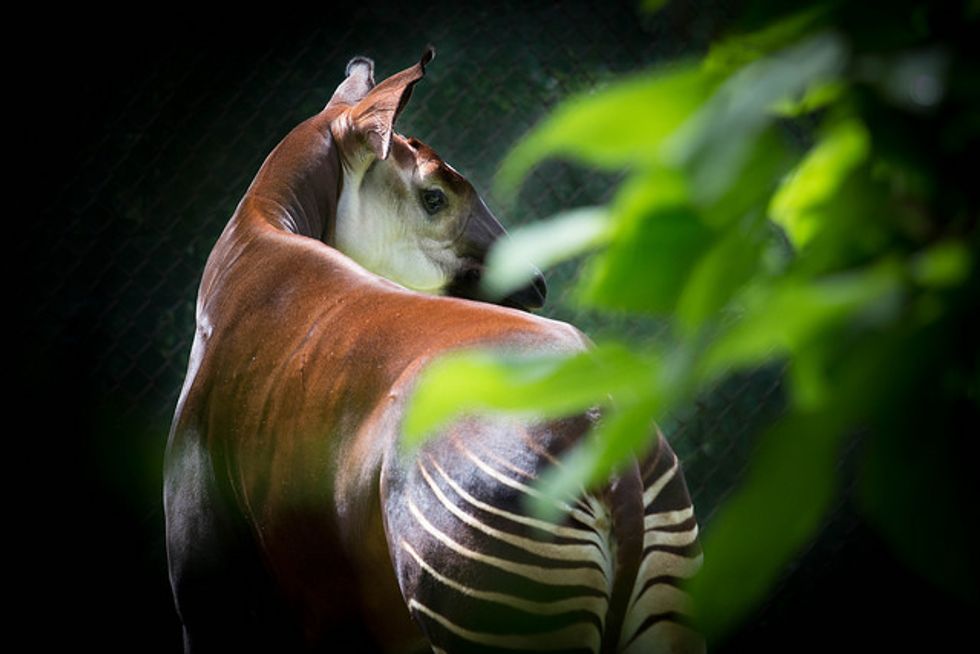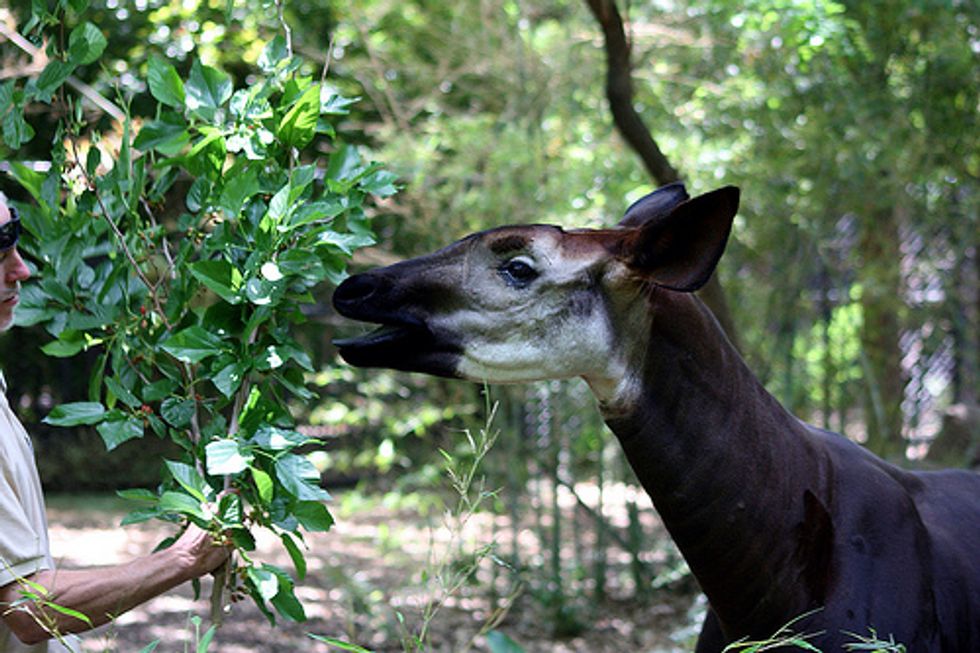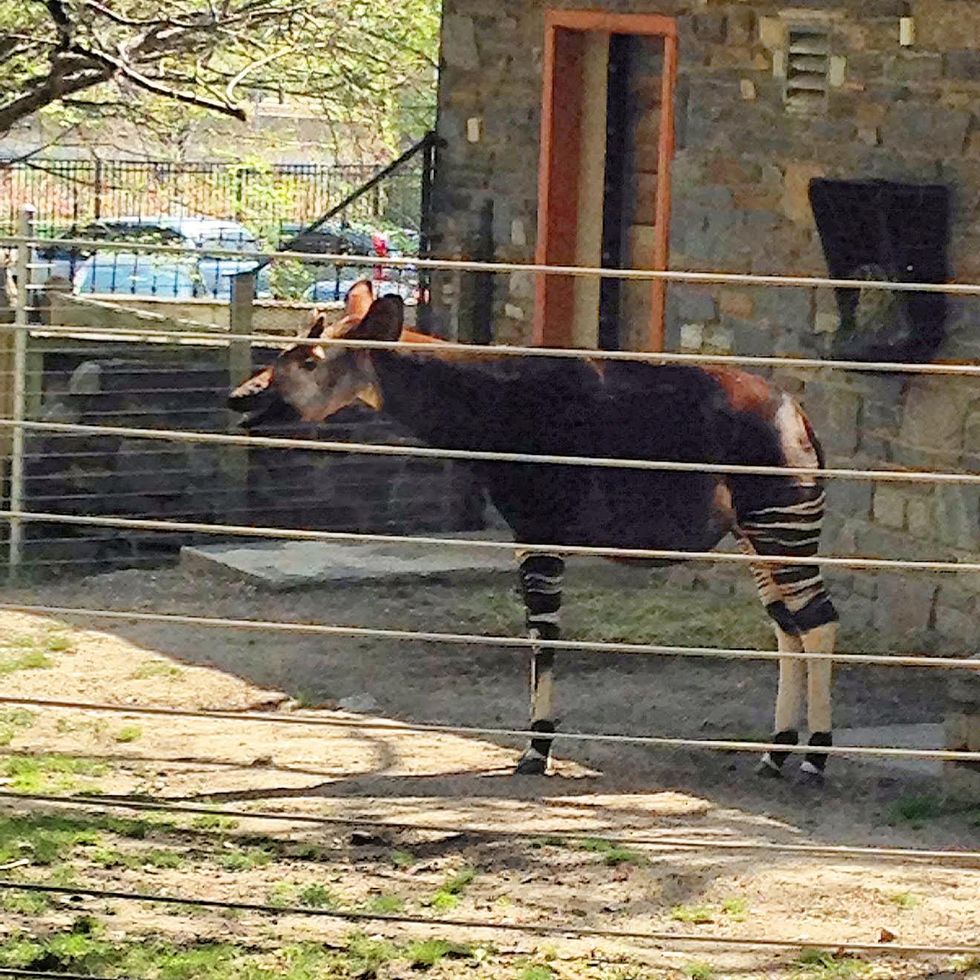A couple years ago when I visited The Maryland Zoo in Baltimore, I discovered what is single-handedly the greatest animal ever, the Okapi. A first glance you might be confused at what you are looking at, but here are some reasons why the Okapi is truly unique.
1. Their Appearance
Is it a zebra? A horse? A giraffe? Well, kind of. When you look at this crazy-patterned creature, you can't help but wonder exactly what the Okapi is. According to the Maryland Zoo in Baltimore's website, the Okapi's closest relative is a giraffe, despite its unique zebra-like stripes on its legs. The stripes help camouflage Okapis while in the forest.
2. Their Freakishly Long Tongue
Like their relative, the giraffe, Okapis have long, black tongues to reach tall trees that contain leaves they like to snack on. An Okapi's tongue is also long enough for them to be able to lick their own eyes and ears. Their tongue is also used for grooming each other as well as their young.
3. Their Territorial Habits
The Okapi is native to the Ituri Forest in central Africa, where they are mostly known for being solitary creatures. But when they do mark their territory for other Okapis, they certainly leave their mark. According to The San Diego Zoo, They have a scent gland in their hooves that secretes a black, tar-like substance that gets left behind on the ground. In addition to that, male Okapis also spray urine to mark their territory as well.
4. Their Gestation Period
Okapis have a long gestation period, which can be from 14-16 months. That's over a year, which is a long time period to carry a single calf. The mother makes a nest during that time and remains there until the calf is born.
5. Their Offspring Are Down Right Adorable
Although the Okapi has a long gestation period, the result is adorable. Okapi calves are usually able to stand only 30 minutes after birth but do not usually leave the nesting area until two months after birth. They gradually develop their white markings and aren't fully grown until three years of age.
6. Their Secretive Nature
The Okapi isn't one of the first zoo animals you learn about as a child, and there's a reason for that. Due to the secluded nature of these animals, they are shy and often are camouflaged. I had no idea what this magnificent creature was until I saw it in captivity, and am so glad I learned of its existence. The Okapi wasn't recognized as a species until 1900-1901.
7. Their Diet
Okapis, like most herbivores, munch on leaves, grasses and fruits. But Okapis also eat fungi that are found to be poisonous, as well as charcoal and clay. According to Arkive, carbon is found in the charcoal which helps with toxin digestion. So essentially, Okapis can eat poisonous fungi and be just fine.
8. Their Lifespan
Okapis have a lifespan of 20-30 years old. The picture above is of an Okapi I visited at The Philadelphia Zoo when I was a junior in high school. His name was Kesho, and he was 24-years-old. He was the fourth oldest Okapi in the world, according to a Facebook post made by The Philly Zoo. May he rest in peace, and hopefully the zoo gets a new one soon, and continue the legacy of this truly unique creature.



